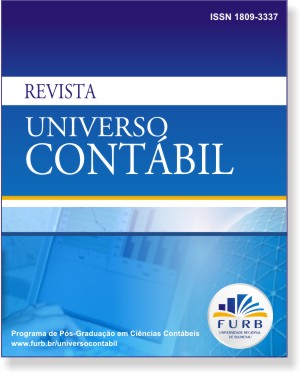MANAGEMENT CONTROL SYSTEMS’ LITERATURE DEVELOPMENT: THEORETICAL APPROACHES AND CRITIQUES WITHIN THE FUNCTIONALIST PARADIGM
DOI:
https://doi.org/10.4270/ruc.20117Keywords:
management control systems, literature review, theories, critiques, paradigmsAbstract
This paper draws a simplified map of the evolution and current state of the theories and frameworks behind management accounting within the functionalist paradigm (PUXTY, 1993) as an aid for researchers and advanced business students. The study summarily presents the paradigms recognized in management accounting as a way to provide a better perspective of the field to novice researchers. Within the functionalist paradigm the evolution of management accounting literature is documented. The historical analysis, framed as a timeline, organizes the diverse research that has dominated the field since the beginning of 1900s in clusters around a certain theory or framework. The ten frameworks identified are: 1) conventional wisdom; 2) mathematical modeling; 3) systems; 4) Anthony’s framework; 5) behavioral; 6) human information processing; 7) transaction costs; 8) agency theory; 9) contingency theory; and 10) strategic. The transition from one cluster of theory or framework to another is explained by critiques; however, some theories and frameworks evolved naturally into others without the need of a critique.Downloads
Download data is not yet available.
Published
2011-07-31
How to Cite
Porporato, M. (2011). MANAGEMENT CONTROL SYSTEMS’ LITERATURE DEVELOPMENT: THEORETICAL APPROACHES AND CRITIQUES WITHIN THE FUNCTIONALIST PARADIGM. Revista Universo Contábil, 7(2), 146–173. https://doi.org/10.4270/ruc.20117
Issue
Section
International Section
License
The copyright for papers published in this journal belong to the author, with rights of first publication for the journal. As the papers appears in this publicly accessed journal, the papers are for free use, receiving their credit, in educational and non-commercial uses. The journal will allow the use of the papers published for non-commercial purposes, including the right to send the paper to publicly accessed databases.


